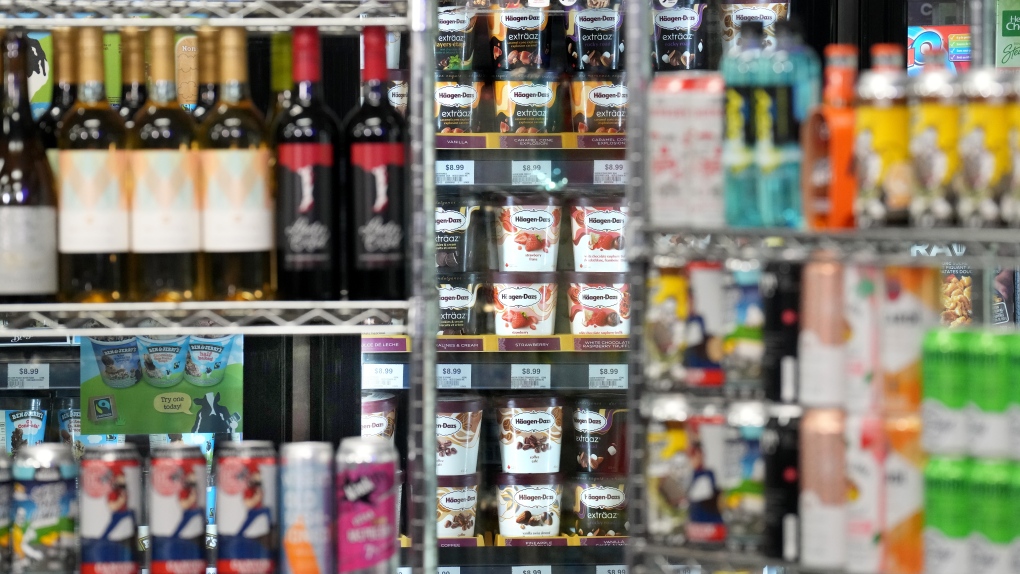Ontario alcohol expansion largest Canadian deregulation policy in decades, report suggests
Ontario’s plan to allow the sale of beer, wine and cider at convenience and big box stores represents “the most substantial alcohol deregulation policy in Canada in decades,” a national medical journal suggests.
The finding was made in an April 8 article published in the Canadian Medical Association Journal (CAMJ), based on new policy that alters how alcohol is sold in the province. The Ford government has previously said the policy changes could allow an additional 8,500 stores to sell alcoholic beverages.
“These changes will result in a 289 per cent increase in the number of alcohol stores in Ontario … (and) will likely reduce the price of alcohol, and will represent the biggest shift in decades with respect to how alcohol is sold in Canada,” the authors of the article write.
- Download our app to get local alerts on your device
- Get the latest local updates right to your inbox
As early as 2026, beer, wine, cider, coolers, seltzers and “other low-alcohol ready-to-drink beverages” will be available for purchase in some big box stores and convenience stores across Ontario, including those located at gas stations.
The province has said these retailers will have to adhere to the same rules set by the Alcohol and Gaming Commission of Ontario, which says that retailers can sell booze between 7 a.m. and 11 p.m., regardless of the hours they are open.
 The Ontario Government announced that in 2026 they will allow sales of beer, wine, cider, coolers and pre-mixed drinks to be sold at convenience stores, grocery stores and "big box" retailers. (THE CANADIAN PRESS/Chris Young)
The Ontario Government announced that in 2026 they will allow sales of beer, wine, cider, coolers and pre-mixed drinks to be sold at convenience stores, grocery stores and "big box" retailers. (THE CANADIAN PRESS/Chris Young)
However, the peer-reviewed CAMJ article suggests the changes will lead to greater alcohol use and associated harms, including deaths, emergency department visits, hospital admissions, interpersonal violence and chronic disease.
Dr. Daniel Myran, one of the authors of the CAMJ article and assistant professor at the University of Ottawa, says that alcohol is estimated to have caused 6,200 deaths in 2020, in addition to 250,00 emergency room visits and just under 50,000 hospital admissions.
Myran estimates the cost of the health impacts related to alcohol is just over $7 billion.
“There's really, really strong and robust evidence showing that the cheaper alcohol is, the more people consume it and the more harms that you see from it.”
The concerns expressed in CAMJ echo those made by Ontario’s Chief Medical Officer of Health in his annual report released earlier this month.
In the report, Dr. Kieran Moore recommended the province adopt a “comprehensive alcohol strategy designed to reduce alcohol-related harms.”
He also noted that if the number of retail outlets selling alcohol increases, the province will need to invest in services to monitor compliance with minimum age laws as well as product promotion, in addition to considering “other measures to reduce potential harms, such as fines and license fees, progressive enforcement up to and including loss of license, and enforcing restrictions related to the distance/ proximity of these outlets to places like schools and daycares.”
Moore said that the expansion of alcohol sales in Ontario in 2015 was associated with a 17.8 per cent increase in emergency department visits attributable to alcohol.
The Ontario government has said it will not be exploring any of the recommendations in Moore’s report.
“We believe in treating people like adults,” the premier said in early April at a news conference.
“You get to go into a retail store, a big box store, and buy a bottle of wine with your steak and maybe a six pack of beer like the rest of the world. That's what we believe in.”
 Ontario Premier Doug Ford attends a press availability at a convenience store in Toronto, Thursday, Dec. 14, 2023. THE CANADIAN PRESS/Chris Young
Ontario Premier Doug Ford attends a press availability at a convenience store in Toronto, Thursday, Dec. 14, 2023. THE CANADIAN PRESS/Chris Young
The CAMJ report suggests that harms could be reduced by ensuring a minimum price for alcohol is established by both federal and provincial governments, and that enhanced warning levels be put on alcohol beverages to increase “consumer awareness of alcohol related harms.”
It also suggests that the federal government review and update regulations on alcohol marketing in Canada.
A spokesperson for the Ford government said that the safe, responsible sale and consumprion of alcohol in Ontario "continues to be a priority."
They also said the government announced an additional $10 million cash infusion to support "social responsibility and public health efforts to ensure alcohol continues to be sold and consumed safely."
CTVNews.ca Top Stories

Donald Trump says Canada becoming 51st U.S. state 'a great idea'
U.S. President-elect Donald Trump is taking aim at Canada once more, saying it would be 'a great idea' to make it America's ‘51st state.'
'You're either with Beijing or you're with Washington': Ford says to Mexico in CNN interview
Ontario Premier Doug Ford has a message for Mexico as the threat of tariffs by incoming president Donald Trump hangs over both sides of the U.S. border.
There are 88 new Order of Canada appointees. Here's a look at some of the most notable names
Ryan Reynolds, Scott Oake and Maureen Ann Jennings are among the 88 new recipients of the Order of Canada.
After scamming their victims, some con artists go on to scam our courts with impunity
Convicts, including fraudsters, are skipping out on their court-ordered payments to their victims to the tune of tens of millions of dollars across the country, according to figures obtained by CTV W5.
Synagogue on Montreal's West Island targeted by alleged arson
A synagogue on Montreal's West Island was the target of an alleged arson attack.
Iconic Halifax ship Theodore Too partially sunk at Ontario dock
An iconic ship that was a fixture in Halifax Harbour for 21 years has partially sunk in Ontario.
Canadians return to Canada Post with relief -- and shakier faith in the service
Canada Post trucks, conveyors and mail carriers swung back into motion Tuesday after a month-long strike by more than 55,000 postal workers left letters and parcels in limbo and a massive backlog to sort through.
NEW These seniors were hit by the affordability crisis in a different way. They're having to support their children and grandchildren
With the high cost of living increasingly a concern, some seniors are making sacrifices to help their adult children and grandchildren make ends meet. Here are some of their stories.
Restaurants that charge tax during holiday break could get investigated by CRA: industry expert
Restaurants that fail to honour the holiday tax break could be investigated by the Canada Revenue Tax Agency, according to the Ontario Restaurant Hotel and Motel Association.


































